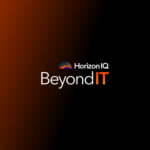
As healthcare continues to evolve, technology advancements will be required to ensure quality care in the face of change.
Increased consolidation within the healthcare industry is driving the need for interoperability across providers, plans, and systems. The ability to synchronize and share data between healthcare entities will be key for delivering quality holistic patient care. However, compliance restrictions regarding data security and privacy, and limited interoperability standards do not allow the fluidity needed for information sharing.
Below are six healthcare trends that will drive technology changes in the coming year.
1. Consolidation and globalization
The consolidation already taking place in the healthcare industry will continue through 2016 and beyond. As more mergers and acquisitions happen, payers will need to manage complex system integration. And, providers that become owners of health plans will be taking on additional risk. For example, when a healthcare entity acts as both hospital and insurance company, the costs and care associated with the patient become its responsibility. The provider groups that are looking to either start up new provider-owned plans or sponsor health plans are doing so to take on the full responsibility of an individual’s care and ultimately hope to improve the overall health of the populations they serve.
In addition to the consolidation of U.S.-based health organizations, the globalization of healthcare will become a worldwide challenge. Sharing patient information across countries will be vital in some cases, yet data privacy restrictions can be daunting. Healthcare technologies that provide data integration to support consolidation and globalization will be critical to the success of health organizations.
2. Increase scrutiny on security, privacy, and regulation
Driven by the consolidation and globalization of healthcare, the security of PHI and other data will continue to be a key focus. While stringent technology regulations are already part of HIPAA requirements, the increased consolidation and need for interoperability will make technology environments even more complex. In addition to being an issue for healthcare companies in the US, it will become a worldwide pain point as globalization expands the reach of healthcare data.
Telehealth systems are one example of this. Such services provide access to healthcare professionals via phone or video as a cost-effective option for individuals who may be in remote areas or otherwise unable to meet their provider in person. However, telehealth visits generate additional data points that should be shared with the primary care doctor and others involved with care of that patient, further expanding the need for integrated systems and data management. New technologies are needed to support this type of collaboration without compromising data security or patient confidentiality.
3. Focus on collaboration and care coordination
The need for increased collaboration will change how healthcare is delivered. Integrated care management (ICM) can only be achieved with technology platforms that incorporate behavioral, medical and non-medical services within the same system. All parties must share data and have access to a range of information to ensure the right decisions are made.
Care models are trending toward this collaborative approach, and Casenet focuses on designing systems that encourage and support collaboration around healthcare management. As organizations merge, and integrated health systems that include both hospital systems and health plans, struggle to coordinate health data between different parties, the need for seamless data sharing is key. This lack of fluidity directly impacts quality of care.
Healthcare technology will need to support the collaborative approach to ensure quality of care and better results.
4. Need for cloud-based access and management of data
Cloud technology will be instrumental in providing controlled access for hospital and health networks that need to share PHI and other patient data. The complexities of establishing an environment that meets network isolation and data segregation requirements will lead healthcare companies to cloud service providers that offer HIPAA-compliant infrastructure. At Casenet, more clients are simplifying infrastructure management by choosing to host their data in the cloud. The role of private cloud will also become more important for access control and data security.
5. Proliferation of mobile and Internet of Things (IoT)
As the data generated by connected devices becomes increasingly valuable to care managers and patients, technology will need to meet demands for controlled access to this information. Real-time visibility into patient health offers tremendous benefits, including better patient engagement through both active and passive data collection. The ability to monitor medical conditions and in some cases prevent life-threatening health events will revolutionize preventative medicine.
Big data and predictive analytics can also help providers make accurate, informed decisions that affect the health of a community or region. However, increased cloud adoption, improved data security and more standardized IoT platforms are needed before health providers and networks feel comfortable adopting mobile and IoT technologies.
6. Increased patient engagement through technology
High-deductible health plans and the proliferation of connected devices, wearables and apps that generate or track personal data and information will encourage individuals to take more responsibility for their own health. While high-deductible health plans and health savings accounts have already given healthcare consumers more control over their health choices, new technologies that encourage a healthy lifestyle and help patients monitor their own health will shift some responsibility from healthcare providers to the individual. These new technologies will give patients insight into their own wellbeing and drive them to be more involved in managing and preventing health conditions.
While continuous change and the consolidation of the healthcare industry may be taking place for a multitude of business and operational reasons, these trends can also be drivers of improved quality of care. The U.S. has access to more medical technology and spends more per capita on healthcare than other developed countries. Yet, the outcomes of our health systems leave room for improvement. Emerging technologies and cloud solutions can help foster the needed collaborative approach to healthcare without compromising data security.


